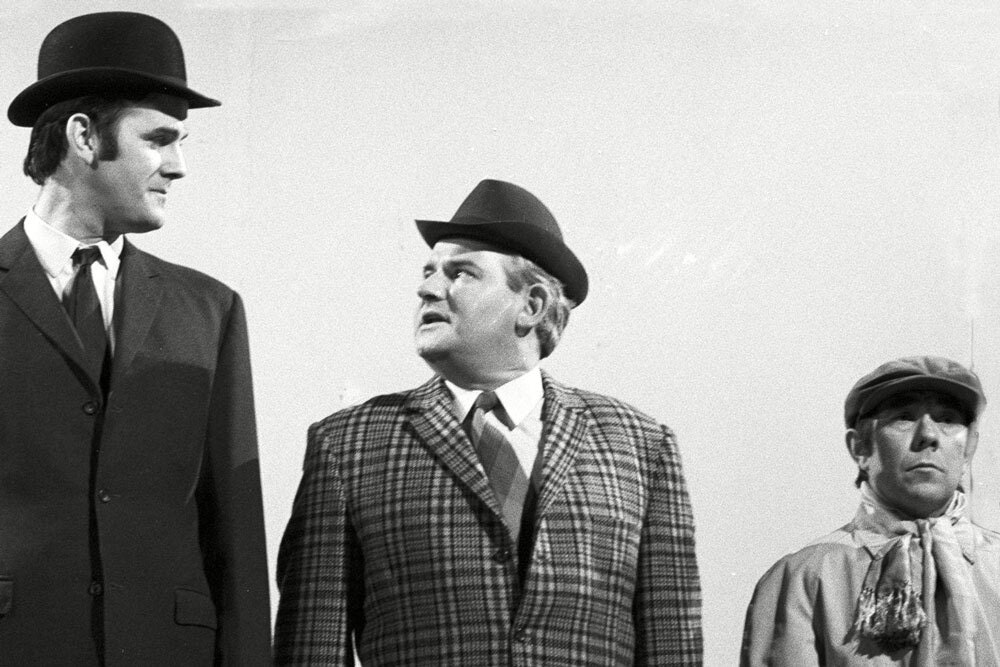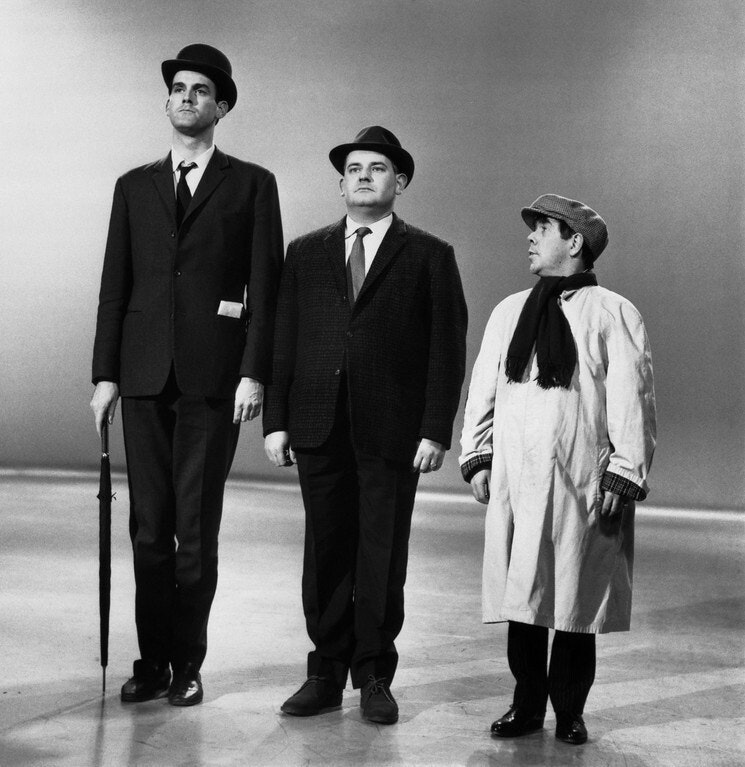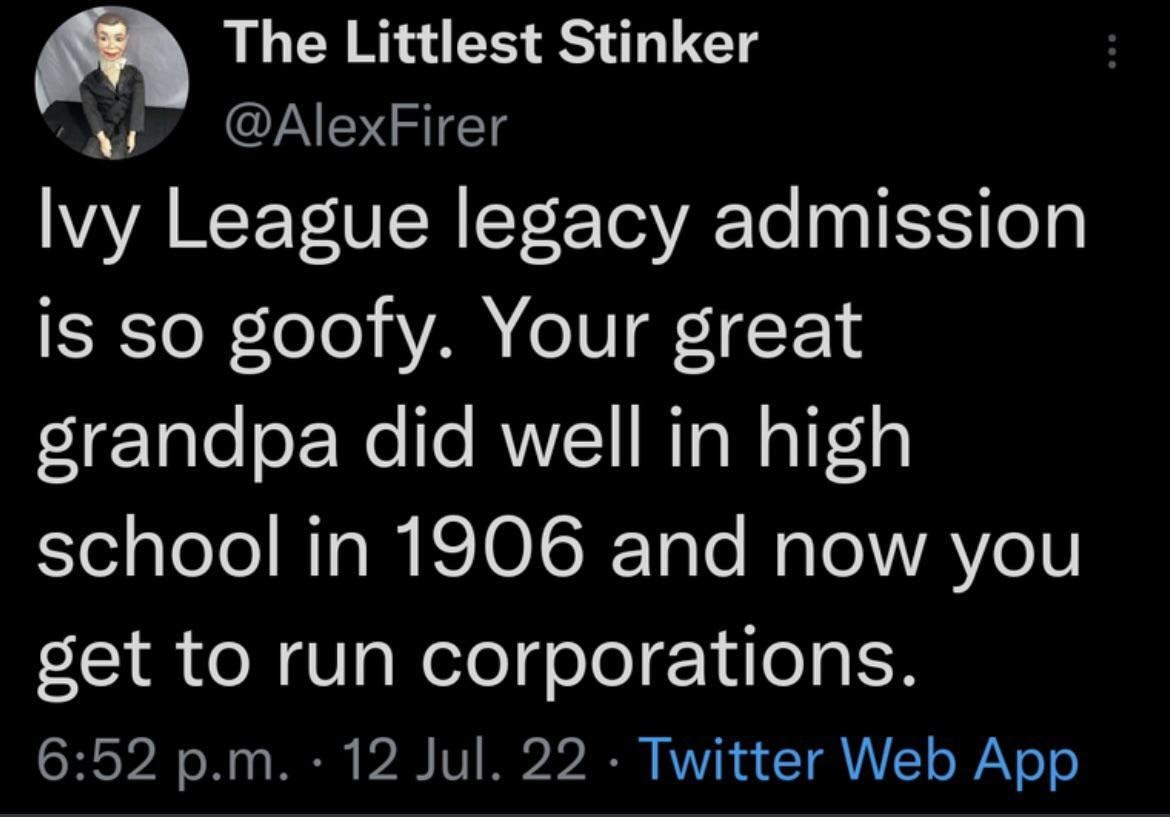Tedium - Class, Dismissed 🎩
|
|
|
|
|
|
|
|
|
Older messages
Longform Brevity 🗞
Thursday, July 14, 2022
Why quick-hit journalism on the internet kinda stinks. Here's a version for your browser. Hunting for the end of the long tail • July 13, 2022 Today in Tedium: I have a bone to pick with one of the
Whipped Cream, No Other Delights 🍨
Saturday, July 9, 2022
How technology forever changed whipped cream. Here's a version for your browser. Hunting for the end of the long tail • July 08, 2022 Today in Tedium: Let me ask you a question that you probably
No Hiding These Logos 💻
Wednesday, July 6, 2022
How stickers became such a prominent computer-branding tactic. Here's a version for your browser. Hunting for the end of the long tail • July 06, 2022 Hey all, Ernie here with a piece from Yuri
Plot Point Does Not Compute 💾
Saturday, July 2, 2022
Why bad scenes involving computers happen to good movies. Here's a version for your browser. Hunting for the end of the long tail • July 01, 2022 Today in Tedium: Exactly 26 years ago this week,
Life Between Charges 🪫
Wednesday, June 29, 2022
The rechargeable battery, and the flashlight that popularized it. Here's a version for your browser. Hunting for the end of the long tail • June 29, 2022 Today in Tedium: Perhaps this sounds a
You Might Also Like
New Golang-Based Backdoor Uses Telegram Bot API for Evasive C2 Operations
Thursday, February 27, 2025
THN Daily Updates Newsletter cover ⚡ LIVE WEBINAR ➟ Building Resilient Identity: Reducing Security Debt in 2025 Attacks Evolve, So Can Your Defenses--Learn How to Mitigate Risk and Optimize Identity
Reminder: What developer productivity metrics actually measure
Thursday, February 27, 2025
You are receiving this email because you subscribed to microservices.io. Considering migrating a monolith to microservices? Struggling with the microservice architecture? I can help: architecture
⚡ THN Weekly Recap: Google Secrets Stolen, Windows Hack, New Crypto Scams & More
Thursday, February 27, 2025
From Google espionage to crypto scams, this week's Cyber Recap uncovers it all—read more now ͏ ͏ ͏ ͏ ͏ ͏ ͏ ͏ ͏ ͏ ͏ ͏ ͏ ͏ ͏ ͏ ͏ ͏ ͏ ͏ ͏ ͏ ͏ ͏ ͏ ͏
Guest-post: Open-source Python Development Landscape
Thursday, February 27, 2025
30 must-know tools for Python development ͏ ͏ ͏ ͏ ͏ ͏ ͏ ͏ ͏ ͏ ͏ ͏ ͏ ͏ ͏ ͏ ͏ ͏ ͏ ͏ ͏ ͏ ͏ ͏ ͏ ͏ ͏ ͏ ͏ ͏ ͏ ͏ ͏ ͏ ͏ ͏ ͏ ͏ ͏ ͏ ͏ ͏ ͏ ͏ ͏ ͏ ͏ ͏ ͏ ͏ ͏ ͏ ͏ ͏ ͏ ͏ ͏ ͏ ͏ ͏ ͏ ͏ ͏ ͏ ͏ ͏ ͏ ͏ ͏ ͏ ͏ ͏ ͏ ͏ ͏ ͏ ͏ ͏ ͏ ͏
⚙️ IBM's AI can reason, now
Thursday, February 27, 2025
Plus: A bit of AI legislation
Post from Syncfusion Blogs on 02/17/2025
Thursday, February 27, 2025
New blogs from Syncfusion ® How to Add a Context Menu to .NET MAUI ListView? By Jayaleshwari N This blog explains how to implement a context menu in the .NET MAUI ListView control with code examples.
⚙️ AI chip giant slips
Thursday, February 27, 2025
Plus: How workers use GenAI
JSter #237 - Libraries and more
Thursday, February 27, 2025
My JavaScript. Keep on coding. Libraries Vento - a new templating engine for Deno Modern.js - Inspire Creativity in Modern Web Development cloudflare/workers-graphql-server: 🔥Lightning-fast, globally
Post from Syncfusion Blogs on 02/27/2025
Thursday, February 27, 2025
New blogs from Syncfusion ® Build a Stunning Music Track UI Using .NET MAUI ListView By Jayaleshwari N This blog explains how to create a stunning music track UI using the .NET MAUI ListView control
Import AI 400: Distillation scaling laws; recursive GPU kernel improvement; and wafer-scale computation
Thursday, February 27, 2025
The hardest thing about seeing a portal is getting others to see it ͏ ͏ ͏ ͏ ͏ ͏ ͏ ͏ ͏ ͏ ͏ ͏ ͏ ͏ ͏ ͏ ͏ ͏ ͏ ͏ ͏ ͏ ͏ ͏ ͏ ͏ ͏ ͏ ͏ ͏ ͏ ͏ ͏ ͏ ͏ ͏ ͏ ͏ ͏ ͏ ͏ ͏ ͏ ͏ ͏ ͏ ͏ ͏ ͏ ͏ ͏ ͏ ͏ ͏ ͏ ͏ ͏ ͏ ͏ ͏ ͏ ͏ ͏ ͏ ͏ ͏ ͏








